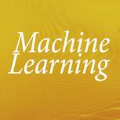Fatigue is a loss in cognitive or physical performance due to physiological factors such as insufficient sleep, long work hours, stress, and physical exertion. It adversely affects the human body and can slow reaction times, reduce attention, and limit short-term memory. Hence, there is a need to monitor a person's state to avoid extreme fatigue conditions that can result in physiological complications. However, tools to understand and assess fatigue are minimal. This paper primarily focuses on building an experimental setup that induces cognitive fatigue (CF) and physical fatigue (PF) through multiple cognitive and physical tasks while simultaneously recording physiological data. First, we built a prototype sensor suit embedded with numerous physiological sensors for easy use during data collection. Second, participants' self-reported visual analog scores (VAS) are reported after each task to confirm fatigue induction. Finally, an evaluation system is built that utilizes machine learning (ML) models to detect states of CF and PF from sensor data, thus providing an objective measure. Our methods beat state-of-the-art approaches, where Random Forest performs the best in detecting PF with an accuracy of 80.5% while correctly predicting the true PF condition 88% of the time. On the other hand, the long short-term memory (LSTM) recurrent neural network produces the best results in detecting CF in the subjects (with 84.1% accuracy, 0.9 recall).
翻译:由于睡眠不足、工作时间长、压力和体力锻炼等生理因素造成认知或物理性能的丧失,是认知或物理性能的丧失。它会对人类身体产生不利影响,并会减慢反应时间、减少注意力和限制短期记忆。因此,有必要监测一个人的状况,以避免会导致生理并发症的极端疲劳状况。然而,理解和评估疲劳的工具很少。本文主要侧重于通过多重认知和物理任务,通过多重物理任务,通过多种认知和体力任务,导致认知疲劳(CF)和体力疲劳(PF)的实验性设置。首先,我们建造了一台带有许多生理传感器的原型传感器,在数据收集期间易于使用。第二,参与者自我报告的视觉模拟分数(VAS)在每次任务后都报告证实疲劳感应。最后,建立了一个评估系统,利用机器学习(ML)模型从传感器数据中检测CFF和FF的状态,从而提供客观的衡量尺度。我们的方法比最先进的方法,即随机森林公司在发现PFPFFF的精度方面做得最好,精确度为80.5%,同时正确预测NPFS-CM的永久记忆状态。88%。




